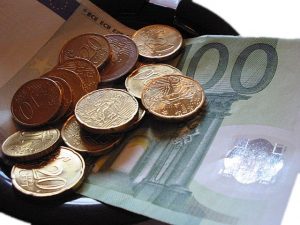Under the scheme, rounding will be conducted on a voluntary basis and will only be applicable to cash payments. One and two cent coins will remain legal tender, with the total amount of any bill rounded up or down to the nearest five cent.
In a statement, the Central Bank said consumers will be entitled to opt-out of rounding and may ask for their exact change. Their spokesman said that from their experience consumers do not like one and two cent coins. These coins are being produced in huge numbers, issued to retailers who then pass them on to consumers. The consumers, in turn, stash them in jam jars and the retailers then have to go back to the Central Bank for more.
Since the launch of the Euro in 2002 the bank has produced around 2.5 billion of these coins which is about 1,500 for every household, but there are very few in circulation because people are not putting them back. Some 2,454,465,931 1 cent and 2 cent coins have been issued in Ireland since the introduction of the euro, with a total value of €37 million. The cost of producing these small coins exceeds their face value – a 1 cent coin costs 1.65 cent to produce while a 2 cent coin costs 1.94 cent.
Belgium, Denmark, Finland, Hungary, the Netherlands and Sweden have already adopted a symmetrical rounding policy on smaller coins.
John Lowe The Money Doctor said that prices will stay as they are, but change will be rounded to the nearest 5c. “If the total bill is €11.21 it will round down to €11.20, if it is €11.24 it rounds up to €11.25. Half the time you will gain one or two cents, half the time you will lose one or two cents. “It will balance out very quickly for the consumer and the retailer, the only difference will be that we won’t be carrying around a big pocket of brown coin.” Meanwhile, a number of charities are encouraging people to donate their hoarded coinage to good causes.

